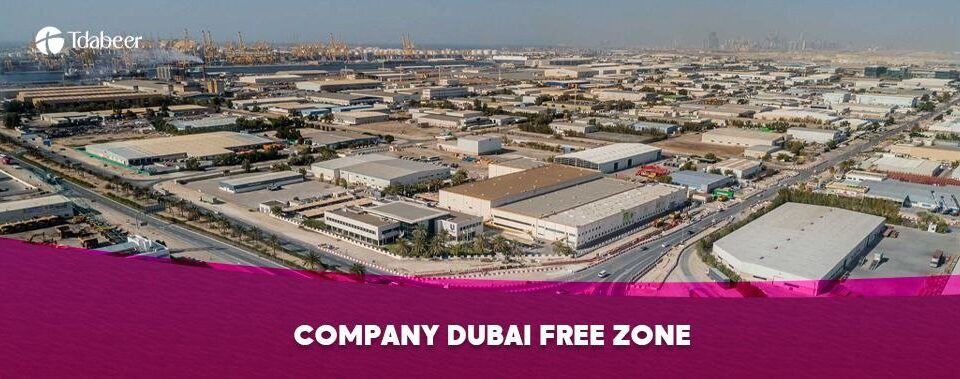
Dubai has become a global business hub, attracting investors and entrepreneurs from around the world. One of the key factors contributing to Dubai’s business-friendly environment is its numerous free zones.
These zones offer various incentives for businesses, making them ideal for foreign investors. In this guide, we’ll explore the steps, benefits, and important considerations for setting up a company in one of Dubai’s free zones.
What is a free zone?
A free zone is a designated area within the UAE that allows businesses to operate with a range of benefits, including tax exemptions, full foreign ownership, and simplified business setup processes. Free zones in Dubai cater to specific industries, providing tailored infrastructure and regulatory frameworks to support various sectors.
Popular Free Zones in Dubai
There are over 30 free zones in Dubai, each offering unique advantages based on the industry focus. Here are some of the most popular free zones:
Jebel Ali Free Zone (JAFZA)
- One of the oldest and largest free zones, ideal for logistics, trade, and manufacturing companies.
Dubai Multi Commodities Centre (DMCC)
- Focused on commodities trading, including gold, diamonds, and tea, but open to a wide range of industries.
Dubai Silicon Oasis (DSO)
- Specializes in technology-based businesses, offering advanced IT infrastructure.
Dubai International Financial Centre (DIFC)
- Designed for financial services firms, including banks, insurance companies, and asset managers.
Dubai Media City (DMC)
- Tailored for media and advertising agencies, digital content creation, and broadcasting.
Dubai Airport Free Zone (DAFZA)
- Ideal for businesses involved in aviation, logistics, and import/export.
Benefits of Setting Up a Company in a Free Zone
100% Foreign Ownership
- Unlike mainland companies where local ownership may be required, free zones allow full ownership by foreign nationals.
Tax Exemptions
- Companies operating in free zones benefit from a 0% corporate tax rate and exemption from import/export duties.
Repatriation of Profits
- Free zone businesses can repatriate 100% of their profits and capital without any restrictions.
No Currency Restrictions
- Free zones offer complete flexibility in currency usage, making international transactions smoother.
Simplified Company Setup
- Setting up a company in a Dubai free zone is often quicker and involves fewer bureaucratic hurdles compared to the mainland.
Access to Skilled Workforce
- Free zones provide easy access to a highly skilled and diverse labor force, with simplified visa processes for employees.
Industry-Specific Infrastructure
- Free zones are equipped with state-of-the-art facilities, technology, and support systems tailored to specific industries like tech, finance, and media.
Types of Companies You Can Set Up in a Dubai Free Zone
Free Zone Establishment (FZE)
- A single-shareholder company, ideal for solo entrepreneurs or a single corporate entity.
Free Zone Company (FZC)
- It requires two or more shareholders, which can be individuals or corporate entities.
Branch of an Existing Company
- Allows you to establish a branch of an existing local or international business in a Dubai free zone.
Steps to Set Up a Free Zone Company in Dubai
Choose the Right Free Zone
- Selecting the right free zone depends on your business activity and industry. For instance, tech startups may prefer Dubai Silicon Oasis, while media agencies might find Dubai Media City more suitable.
Decide on the business activity.
- Each free zone allows specific types of business activities. Ensure your business activity aligns with the free zone regulations.
Select a Company Name
- Choose a unique company name that complies with the UAE’s naming guidelines. Avoid offensive terms or any reference to political or religious entities.
Submit Documentation
- Submit the required documents, which typically include:
- A completed application form
- Passport copies of shareholders
- Proof of residence for shareholders
- A business plan (depending on the free zone)
- Memorandum of Association (MOA) and Articles of Association (AOA)
- Submit the required documents, which typically include:
Obtain a Business License
- After submitting your documents, you will receive a business license. There are different types of licenses based on the business activity, including:
- Trade License for import/export or general trading activities.
- Service License for consulting or professional services.
- Industrial license for manufacturing or production activities.
- After submitting your documents, you will receive a business license. There are different types of licenses based on the business activity, including:
Lease Office Space
- Free zones typically require businesses to have a physical presence. You can lease office space or opt for a flex desk or virtual office, depending on the free zone’s regulations.
Open a Corporate Bank Account
- Once your business is registered, open a corporate bank account in the UAE. Most free zones have tie-ups with local and international banks to facilitate this process.
Obtain Visas for Employees
- You will need to apply for visas for your employees, if applicable. Free zones offer streamlined processes for obtaining work permits and visas for staff.
Costs of Setting Up a Free Zone Company
The cost of setting up a company in a Dubai free zone can vary based on the free zone, type of business, and office space required. Here’s an estimated breakdown:
- Company Registration Fees: AED 10,000–AAED 50,000
- Business License Fees: AED 15,000–AAED 50,000 annually
- Office Space: AED 15,000–AAED 100,000 annually (depending on the size and location)
It’s important to note that some free zones offer packages for startups and SMEs, which may include a flex desk, license, and visa allocation at a discounted rate.
Important Considerations
Business Activity Restrictions
- Free zones have specific guidelines on the type of business activities allowed. If your business involves trading with the local UAE market, you may need to work with a local distributor.
Limitations on Trading in the UAE Mainland
- Free zone companies can operate globally and within the free zone itself but require a local partner or distributor to trade within the UAE mainland.
Renewal of Business License
- Free zone business licenses need to be renewed annually. The process is usually straightforward but must be completed on time to avoid penalties.
Visa Quotas
- The number of visas you can apply for depends on the office space you lease. Larger offices allow for more visas, while flex desk packages may have limited visa quotas.
Conclusion
Setting up a company in a Dubai free zone offers numerous benefits, including full foreign ownership, tax exemptions, and access to world-class infrastructure.
By following the correct steps and selecting the right free zone for your business, you can take full advantage of the favorable business environment Dubai offers.
Whether you’re a startup, SME, or large corporation, Dubai’s free zones provide the tools and opportunities to grow and thrive in a competitive global market.




